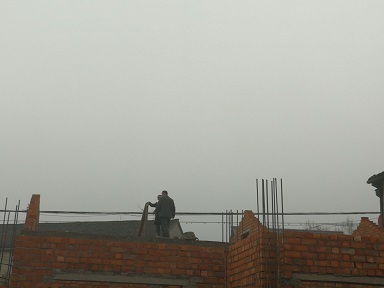Feb. 8 (NBD) -- Over the past several years, the homestay industry enjoyed fast growth and drew handsome investment. Recently, homestay inns walked up to the public's awareness thanks to the popular reality shows like "The Inn" and "Dream House".
However, the updated report concerning China's tourism from 2017 to 2018, compiled by the Tourism Research Center, Chinese Academy of Social Sciences, said that the emerging homestay industry is showing signs of excessive investment.
Industry insiders noted that homestay inns were either teaming up or seeking for chain-store operations so as to survive the reshuffle.
NBD reporters visited Moganshan, a tourist region featuring rural homestay hotels near Hangzhou of eastern China's Zhejiang province, in order to shed some light on the matter.
Moganshan, once industry benchmark, runs into excessive investment
Moganshan, located within the three-hour economic circle of Jiangsu, Zhejiang and Shanghai, well catered to the needs of white-collar weekenders in the area. Besides, its rural homestay inns appealed to an increasing number of long-distance tourists.
In 2012, Moganshan ranked the 18th place in the list of "The 45 Place to Go" released by the travel section of New York Times.
Since then, investors, designers, painters and local villagers swarmed to build homestay inns in this bamboo-covered mountain. The number of homestay hotels here has surpassed one thousand and was still counting.
Xia Yuqing, founder of an online homestay service platform, said that Moganshan's homestay market had reached saturation.
Upon the visit, NBD noticed that the town of Monganshan was crowded with homestay hotels and lots of new ones were under construction.
In contrast with the new construction in full swing, financial results of existing inns saw a decline in the off season this year compared with previous years. An owner told NBD that in order to attract clients, he had no choice but to lower prices and he was not the only one who was struggling with the occupancy.
Zhu Yan, vice president of Naked Group which built Naked Village, Naked Stable and Naked Castle in Moganshan disapproved the price battle, saying that the homestay industry there was facing a reshuffle.
Zhu noted that characteristic and considerate homestay inns would keep their foothold, but those leaning on price war would be swept out eventually.

Construction site of a homestay hotel in Moganshan (Photo/NBD)
Crowdfunding, asset-light model increasingly favored
Amid intensifying reshuffle, some well-known homestay brands raised investment through crowdfunding platforms.
Yang Mohan, founder of homestay brand LostVilla regarded crowdfunding as a way to gather idle funds to support homestay hotels. The process was not only about money, but also to utilize the resources and social connections behind investors, Yang added.
A researcher at the Suning Financial Research Institute, Li Tao, held a different idea about crowdfunding, saying that there existed risks from policy changes regarding homestay projects, declining occupancy of homestay inns and difficulties in conducting profit researches in this sector.
With huge risks in crowdfunding, how could homestay hotels expand?
NBD learned that owners were increasingly turning to chain-store operations via asset-light model. Zhu introduced to NBD that Naked Group was expanding to areas outside Moganshan mainly by licensing its brand and providing managerial expertise.
LostVilla was taking the same road. The company collaborated with proprietors to set up a new homestay hotel in Anji county, northern Zhejiang province. By providing just its brand and management, LostVilla took a 20 percent stake of the facility.
Yang said that the reason to do chain-store operations is to systemize the product line and the goal for his company is to open three to four new inns annually in the coming years.

A homestay hotel in Moganshan (Photo/shetuwang)
Standardization to bring fast growth
The survey on China's online homestay booking market released by think tank Analysys shows that the domestic market amounted to 7.75 billion yuan (1.2 billion U.S. dollars) in 2016 and the figure for 2017 was projected to reach 12.71 billion yuan (2.0 billion U.S. dollars).
Yang Changle, chief operating officer of Chinese home-sharing giant Tujia, believed that the consumption upgrade fans the flame of the homestay industry, making homestay inns important complements to hotels. Compared with hotels, homestay inns provide more individualized services, and allow a family to enjoy time together and bring pets with them.
However, some people questioned the profitability of homestay projects, saying that only 20 percent of them were profitable.
With regard to this, Xia thought that the biggest risk in this sector is unsatisfactory services, and only quality homestay services and products can go further.
NBD noticed that in September 2017, Zhejiang province issued a document to standardize and regulate the homestay market, which underlines the importance of client experiences.
Skilled people in planning, operation, management, design and service were in need. Zhu Yan of Naked Group found that the industry was facing brain drain. Yang Mohan of LostVilla agreed, saying that there was a vast shortage of qualified personnel.
The talent vacancies represent the industry is increasingly professionalized and standardized. As Yang said, the upcoming reshuffle will rule out inns with poor management and reallocate resources.
Some industry insiders noted that upon the completion of offline quality control and standardization, China's homestay industry will see fast growth.
Email: gaohan@nbd.com.cn


 川公网安备 51019002001991号
川公网安备 51019002001991号





